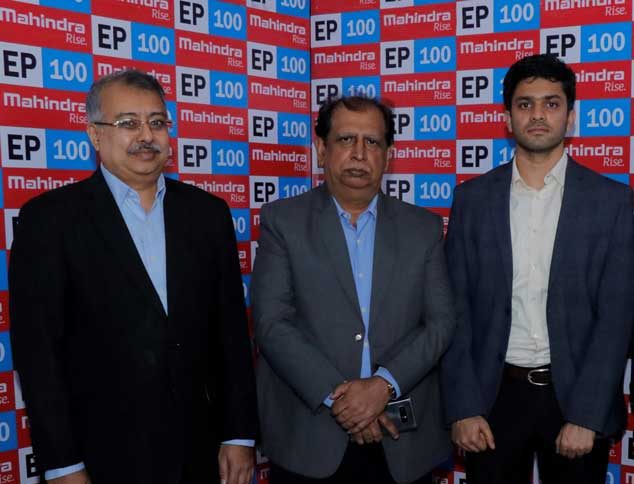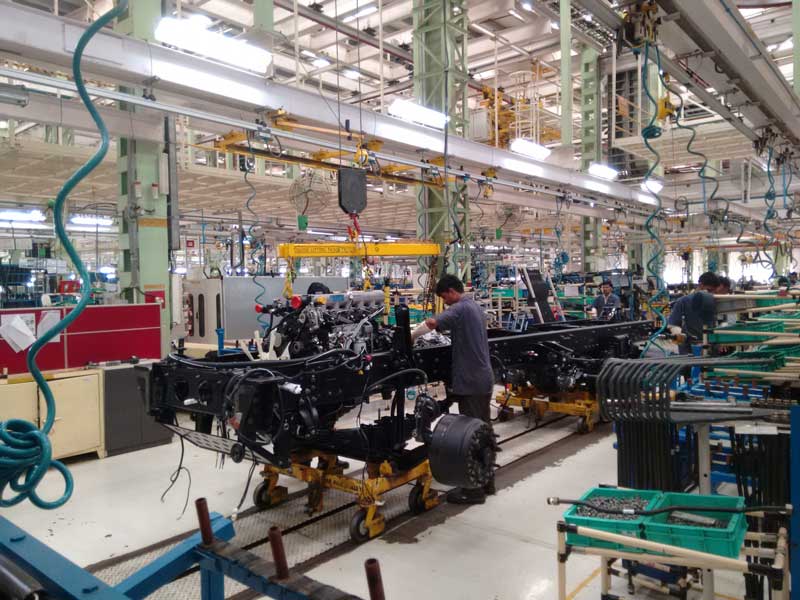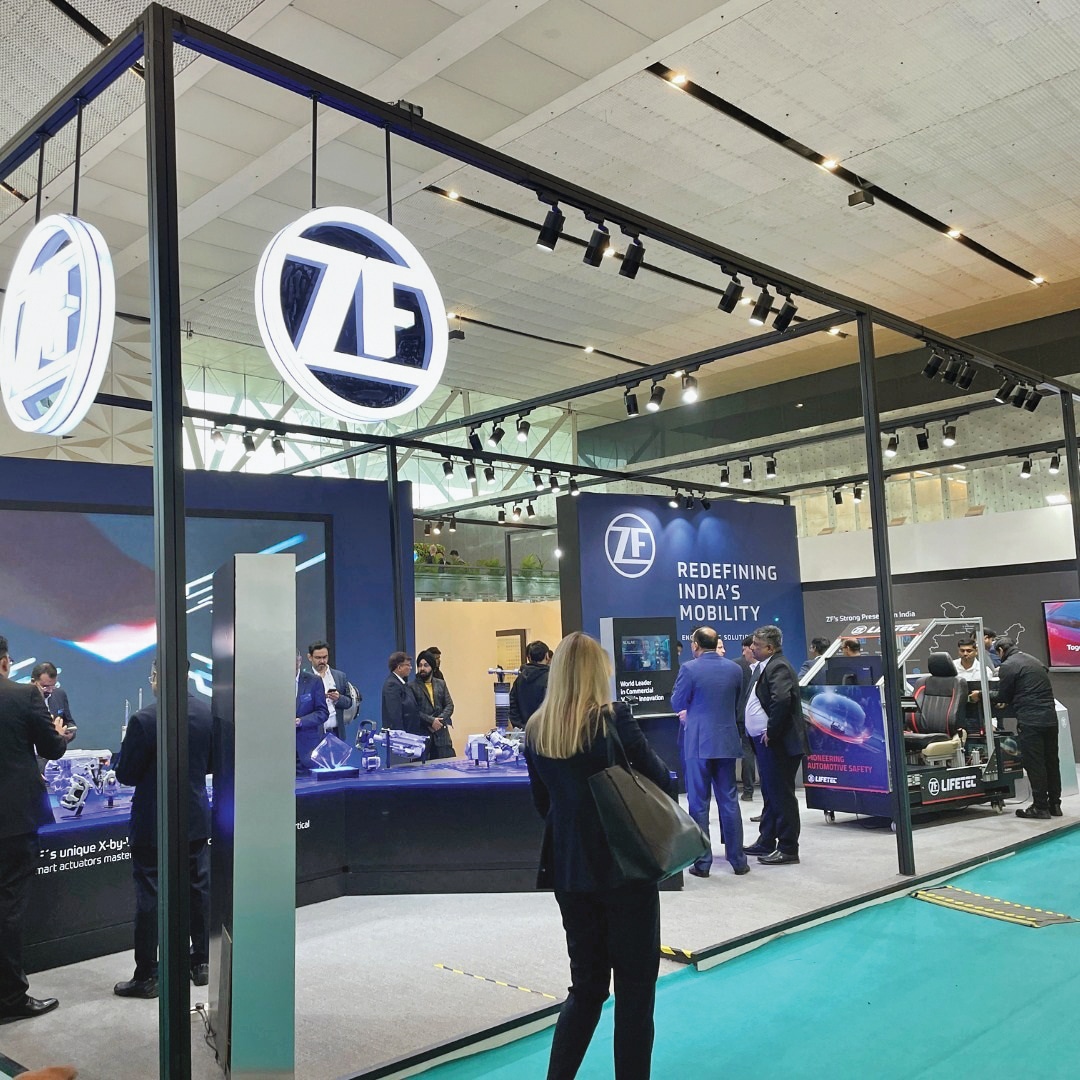Sustainable manufacturing practices gather steam as manufacturers strive to increase plant efficiencies.
Story by: Deven Lad
Efficiencies in manufacturing have taken centre stage. The idea of being able to produce something without wasting materials, time or energy has long appealed to manufacturers. While most would like to target 100 per cent efficiency levels reports suggest that many are still operating at 60 to 80 per cent levels in reality. Initiatives like the Climate Group’s global EP100 are known to be at the forefront of climate action. The initiative to save energy, in partnership with the Alliance, for instance, brought together 77 energy-smart companies. These companies committed to using energy more productively, to lower greenhouse gas emissions and accelerate a clean economy. On the EP100 list are Indian companies like Mahindra & Mahindra Limited, Mahindra Heavy Engines Limited, Mahindra Vehicles Manufacturers Limited, Swaraj Engines Limited. Companies like BMW and Tata Motors were among companies to join initiatives like RE100 a global collaborative initiative of the world’s most influential companies committed to 100 per cent renewable power, led by The Climate Group in partnership with CDP. One of the key focus areas of the RE100 program, for instance, is to help manage fluctuating energy costs and improve competitiveness through the use of renewable power. RE100 comprises a total of 235 companies committing to go 100 per cent renewal.
MHEL doubles energy productivity
In March 2020 Mahindra Heavy Engines Limited attained the feat of doubling energy productivity in a span of four years. Averred Vijay Kalra, Chief Executive Officer at Mahindra Vehicle Manufacturers Ltd. & Chief Manufacturing Operations at Automotive Sector, Mahindra & Mahindra Ltd., “ It was looking difficult. We were targeting for the next 15 years but it happened in four years. “Cost and energy efficiency are two major factors when we talk about energy productivity. Energy productivity improvement is known to have tangible and intangible benefits to up the sustainability of manufacturing plants,” he explained. Doubling over the 2016 baseline, MHEL Chakan unit, according to Kalra is claimed to have become India’s first and the world’s third manufacturing unit to achieve the feat. EP Mike Peirce, Corporate Partnerships Director, The Climate Group said, “By integrating smarter energy use into their business strategy, they are driving down greenhouse gas emissions while boosting the bottom line. MHEL is the first EP100 member from India to achieve this ambitious goal and is leading by example”.

L to R: Anirban Ghosh, Chief Sustainability Officer, Mahindra Group, Vijay Kalra, Chief Executive Officer, Mahindra Vehicle Manufacturers Ltd. and Chief Manufacturing Operations at Automotive Sector, Mahindra & Mahindra Ltd. and Atul Mudaliar, Senior Manager–Energy Transitions (India)
MHEL has prepared a sustainability framework. Under the framework, sustainability efforts were focussed on fostering inclusive development. The company aimed at rejuvenating the environment by achieving carbon neutrality, ensuring no wastage in the landfill and by promoting biodiversity. MHEL is known to have achieved this through energy-efficient lighting, energy-efficient air-conditioning, energy-efficient motors and appliances, usage of alternative fuels, smart metering for real-time monitoring of energy consumption along with other natural resources. The company also ensured manufacturing efficiency improvement through cycle time reduction, production shift optimisation, resource optimisation and built-in flexibility in the process to avoid ad-hoc addition of equipment.
Under an efficient motor program, the company is known to have replaced 800 motors with an investment of 3.4 crores. It is claimed to have resulted in savings of 1281-tonnes of CO2 per year. Mentioned Nasir Deshmukh, Head of Manufacturing Operations at MHEL (Chakan and Igatpuri Engine plant) that at the Chakan unit of MHEL, daily operations of 816 units of light and heavy machines (CNC and special pumps) translated to a high operational cost which the company is said to have reduced by a margin of approx 30 per cent. Other focus areas include growing green revenue, making supply chains sustainable, embracing technology and innovation. MHEL according to Anirban Ghosh, Chief Sustainability Officer at Mahindra Group is also focussing on Energy Management System (ISO50001) certification, smart metering, energy data analysis, review and actions, facilitation for project implementation, resource optimisation, flexibility in manufacturing, green procurement guideline and energy audits to its advantage. Drawing attention to 70 per cent of the plant operations cost being a direct outcome of energy utilisation, claimed Ghosh, returns on energy productivity investments were up to 24 per cent.
Renewable energy sourcing
Minimising the use of energy in its functions and processes, Tata Motors’ Lucknow plant is leveraging innovation, optimising operations, implementing energy-efficient technologies and adopting energy conservation measures. It is also banking on renewable sources of energy and low-cost automation. Pramod Choudhary, Plant Head – Tata Motors Lucknow said, “Our Lucknow plant has always been cognisant of the need for energy conservation and has been steadily making progress towards attaining 100 per cent renewable energy sourcing for all its operations by 2030.” The plant is known to have increased the share of renewable energy to over 16 per cent in the last two years by installing 4MWp capacity rooftop Solar power panels within the plant premises. Attributing the increased share to the implementation of processes like energy monitoring and analysis by means of data captured through hourly energy report, daily energy report, daily energy audits and monthly energy reports, with these, the company has been able to track, analyse and reduce variations in energy consumption across the board including by a dedicated energy management cell. This is claimed to have helped in reducing the plant’s non-working day energy consumption by over 57 per cent from 33,000 kWh to 14,300 kWh between April 2018 and January 2020. The company aims to further enhance the in-house solar capacity through solar walkways, solar street lights, solar heating, electric vehicle charging station etc. Besides, it is also banking on green energy generated through a Biogas plant. Gradually, the target is to adopt new RE technologies taking renewable energy contribution towards 100 per cent. ACI
EP100
 The Climate Group in collaboration with ‘Alliance to Save Energy’ started a global EP100 initiative involving a group of energy-smart companies. Committed to improving their energy productivity and doing more with less, these companies on the back on this initiative have been integrating ambitious energy targets into their business strategy. While driving innovation in energy efficiency and increasing competitiveness, these companies are claimed to have delivered on emissions reduction goals set up by the United Nations. Energy productivity means getting more economic output out of every unit of energy consumed. Increasing energy productivity enables the companies to closely monitor their energy use and helps them align their business growth with sustainability targets. According to the International Energy Agency (IEA), improvements in energy efficiency could deliver over 40 per cent of the greenhouse gas emissions reductions. To qualify as a member of EP100, companies choose among three commitments which include doubling energy productivity, implementing an energy management system or building net-zero carbon buildings.
The Climate Group in collaboration with ‘Alliance to Save Energy’ started a global EP100 initiative involving a group of energy-smart companies. Committed to improving their energy productivity and doing more with less, these companies on the back on this initiative have been integrating ambitious energy targets into their business strategy. While driving innovation in energy efficiency and increasing competitiveness, these companies are claimed to have delivered on emissions reduction goals set up by the United Nations. Energy productivity means getting more economic output out of every unit of energy consumed. Increasing energy productivity enables the companies to closely monitor their energy use and helps them align their business growth with sustainability targets. According to the International Energy Agency (IEA), improvements in energy efficiency could deliver over 40 per cent of the greenhouse gas emissions reductions. To qualify as a member of EP100, companies choose among three commitments which include doubling energy productivity, implementing an energy management system or building net-zero carbon buildings.
RE100
 The Government of India increased its renewable energy target to 227 GW by 2022 thus providing an opportunity to Indian investors and the corporate sector to play an important role in the growth of renewables in India. Led by the Climate Group in partnership with CDP, RE100 is a global corporate leadership initiative introduced to increase corporate demand and supply of renewable energy. It brings together companies which are committed to sourcing 100 per cent renewable electricity globally in the shortest possible timeline ( by 2050 at the latest ). To achieve this goal, the companies need to match 100 per cent of the electricity used across their global operations with electricity produced from renewable sources, either sourced from the market or self-produced. Switching this demand to renewables is transforming the global energy market and accelerating the transition to a clean economy.
The Government of India increased its renewable energy target to 227 GW by 2022 thus providing an opportunity to Indian investors and the corporate sector to play an important role in the growth of renewables in India. Led by the Climate Group in partnership with CDP, RE100 is a global corporate leadership initiative introduced to increase corporate demand and supply of renewable energy. It brings together companies which are committed to sourcing 100 per cent renewable electricity globally in the shortest possible timeline ( by 2050 at the latest ). To achieve this goal, the companies need to match 100 per cent of the electricity used across their global operations with electricity produced from renewable sources, either sourced from the market or self-produced. Switching this demand to renewables is transforming the global energy market and accelerating the transition to a clean economy.













Leave a Reply